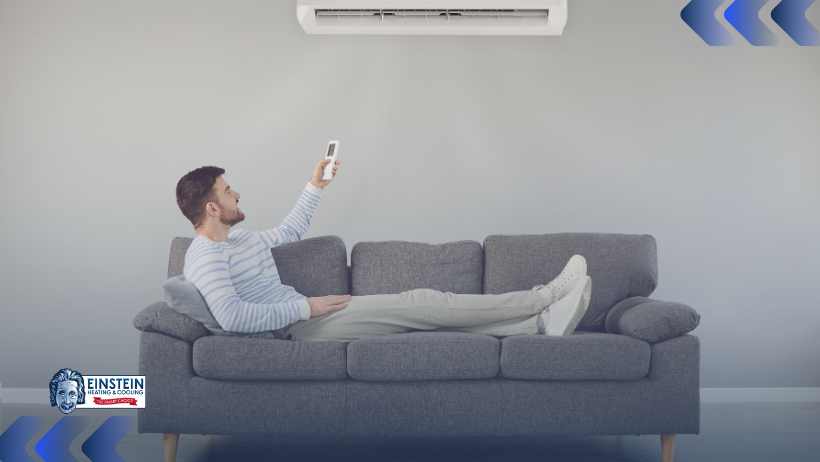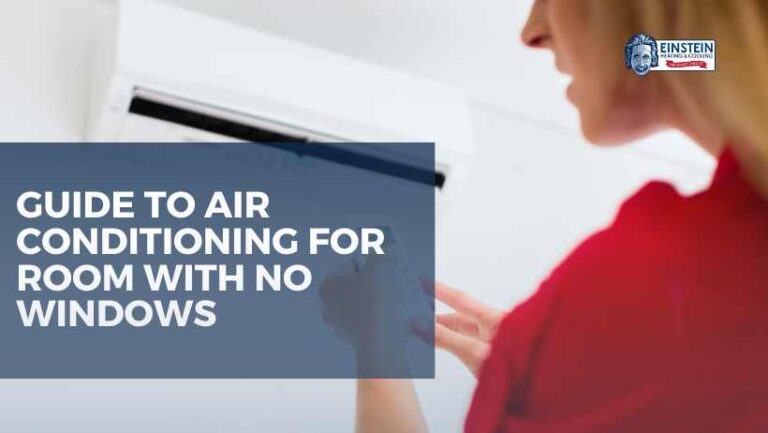As the scorching heat of summer envelops us, the need for effective cooling solutions becomes crucial, especially for rooms without windows. Traditional air conditioning setups may not be applicable in such spaces, making it essential to explore alternative options. In this comprehensive guide, we will delve into various factors and solutions to ensure optimal air conditioning for a room with no windows.
Understanding the Challenge
Lack of Natural Ventilation
- Rooms without windows face a unique challenge – the absence of natural ventilation. Windows typically allow fresh air to circulate, aiding in temperature regulation. In windowless rooms, this natural flow is disrupted, necessitating alternative cooling strategies.
Heat Accumulation
- Without the ability to dissipate heat through windows, rooms can become prone to heat accumulation. This buildup intensifies the need for efficient cooling systems to maintain a comfortable environment.
Factors Influencing Air Conditioning Efficiency
Room Size
Assessing Square Footage
- The size of the room plays a pivotal role in determining the capacity of the air conditioning unit needed. Installing air conditioners for no-window rooms can be beneficial in the long run, provided that the AC unit cools the whole room. Calculate the square footage accurately to ensure the selected system can effectively cool the entire space.
Insulation
Evaluating Insulation Quality
- Well-insulated rooms retain cool air better, reducing the workload on the air conditioning system. Assess the insulation quality of walls and ceilings to identify potential areas for improvement.
Heat-Producing Appliances
Identifying Heat Sources
- Electronic devices generate heat, contributing to the overall temperature of the room. Identify and manage the use of heat-producing appliances to alleviate the burden on the air conditioner.
Climate Considerations
Analyzing Regional Climate
- The climate of your region influences the cooling requirements. Understanding regional temperature patterns helps in selecting an air conditioning system that can effectively counteract specific environmental challenges.
Types of Air Conditioning Systems
Portable Air Conditioners
Flexibility and Mobility
- Portable air conditioners offer the advantage of mobility, allowing users to position them strategically within a windowless room. Consider the unit’s BTU (British Thermal Units) rating to match it with the room size.
Split Air Conditioning Systems
Space-Saving Design
- Split systems consist of indoor and outdoor components connected by refrigerant lines. They are ideal for rooms without windows, providing efficient cooling without the need for window-mounted units.
Ductless Mini-Split Systems
Zoning Capabilities
- Ductless mini-split systems provide flexibility by allowing different temperature settings in individual zones. This feature is advantageous in large windowless rooms, ensuring uniform cooling throughout.
Evaporative Coolers
Cost-Effective Cooling
- Evaporative coolers, also known as swamp coolers, operate by using water to cool the air. They are cost-effective and energy-efficient, making them a viable option for rooms without windows.
Enhancing Cooling Efficiency of Air Conditioning for Rooms with No Windows
Use of Fans
Circulating Air Effectively
- Air conditioners for no-window rooms are important, especially for circulating air effectively. Ceiling fans or oscillating fans can also complement air conditioning systems by distributing cool air evenly. This promotes a more balanced and comfortable atmosphere within the windowless room.
Managing Humidity
Dehumidifiers for Optimal Cooling
- If you want air conditioning for room with no windows, you might consider managing the humidity levels. Integrate a dehumidifier into the setup to ensure that the air conditioning system can focus on temperature regulation without being hindered by excessive moisture.
Strategic Placement of Furniture
Unobstructed Airflow
- Arrange furniture in a way that doesn’t impede the airflow from the air conditioning unit. This allows for better circulation and maximizes the cooling effect within the room.
Energy Efficiency and Cost Considerations
Energy-Efficient Appliances
Investing in Energy Star-Rated Units
- Look for air conditioning units with the Energy Star label. These appliances meet strict energy efficiency guidelines, reducing electricity consumption and long-term operational costs.
Proper Maintenance
Regular Cleaning and Inspection
- Maintaining air conditioning units through regular HVAC cleaning and inspection ensures optimal performance. Dirty filters and coils can significantly diminish efficiency, leading to increased energy consumption.
Smart Thermostats
Programmable Temperature Control
- Integrating smart thermostats allows for precise temperature control and scheduling, optimizing energy usage. This is especially beneficial in rooms without windows, where efficient cooling is paramount.

Integration of Smart Home Technologies
Smart Home Automation
Seamless Integration
- Leveraging smart home technologies can enhance the overall efficiency of your cooling system. Integrating your air conditioning unit with a smart home hub allows for remote control and automation, enabling you to adjust settings from anywhere.
Voice-Activated Assistants
Hands-Free Operation
- Explore voice-activated assistants like Amazon Alexa or Google Assistant, which can be paired with compatible smart air conditioners. This hands-free operation adds convenience to the cooling process, especially in rooms without windows where accessibility might be a challenge.
Innovative Cooling Strategies
Thermal Curtains
Insulating Window Alternatives
- In the absence of windows, thermal curtains can be utilized to insulate the room. These curtains are designed to block heat from entering and escaping, providing an additional layer of insulation and contributing to the overall cooling efforts.
Heat-Reflective Paint
Reflecting Sunlight
- Applying heat-reflective paint to walls and ceilings can significantly reduce the absorption of sunlight, mitigating heat buildup within the room. This innovative solution complements air conditioning systems by minimizing the external factors contributing to elevated temperatures.
Professional Consultation
Expert HVAC Technicians
Customized Solutions
- Engaging the services of an HVAC technician can provide tailored solutions for rooms without windows. These professionals can assess your specific requirements and recommend the most suitable cooling system, ensuring optimal performance and energy efficiency.
Energy Audits
Identifying Energy Wastage
- Consider conducting an energy audit for your home, especially if it lacks windows. This thorough evaluation can pinpoint areas of energy wastage and inefficiency, allowing you to implement targeted improvements and enhance overall cooling performance.
Sustainable Cooling Practices
Passive Cooling Techniques
Harnessing Natural Elements
- Explore passive cooling techniques that harness natural elements such as cross-ventilation, shading, and thermal mass. While these methods may not replace the need for air conditioning entirely, they can complement your cooling system and contribute to a more sustainable and eco-friendly approach.
Solar-Powered Options
Harnessing Renewable Energy
- Consider investing in solar-powered air conditioning systems to reduce reliance on conventional electricity sources. Solar panels can be integrated to power the cooling unit, offering a greener alternative for rooms without windows.
User Experience and Comfort
Personal Comfort Settings
Tailored Cooling Preferences
- Modern air conditioning units often come equipped with features allowing users to customize settings based on personal comfort preferences. Explore these options to ensure the system aligns with your specific cooling needs.
Noise Levels
Quiet Operation
- In rooms without windows, noise levels from the air conditioning unit can be more noticeable. Prioritize units with low decibel levels to maintain a peaceful and comfortable environment, especially during periods of extended use.
Ventilation Requirements
Proper ventilation is crucial for maintaining the efficiency of any air conditioning system. In rooms without windows, portable air conditioners and other units that require exhaust need alternative methods for venting. Consider the following options:
Venting Through Walls:
- Install a venting kit to create an exhaust outlet through an exterior wall.
Ceiling Ventilation:
- If possible, venting through the ceiling might be an option, although it requires careful planning and professional installation.
Ducted Systems:
- Ductless mini-split systems are an excellent option as they don’t require traditional ductwork, allowing for more installation flexibility.
Why Getting Air Conditioners For No Window Rooms is Important
- Improved Comfort: One of the primary reasons to install an air conditioner in a windowless room is to enhance comfort. Air conditioners regulate the temperature and humidity, creating a more pleasant and controlled environment. This is especially crucial in spaces where natural ventilation is limited.
- Health Benefits: Proper air conditioning can contribute to better indoor air quality. It helps filter out dust, allergens, and pollutants, creating a healthier living or working environment. This is particularly important in windowless rooms, where the circulation of fresh air might be restricted.
- Prevention of Mold and Mildew: Rooms without windows are often more susceptible to moisture accumulation, leading to the growth of mold and mildew. Air conditioners help dehumidify the air, reducing the risk of mold development and creating a healthier living space.
- Temperature Control: In the absence of windows, temperature control becomes challenging. Air conditioners provide a reliable way to maintain a consistent and comfortable temperature, allowing occupants to adapt the room to their preferences.
- Enhanced Productivity: For windowless rooms used as offices or workspaces, maintaining an optimal temperature is crucial for productivity. Air conditioners create a more conducive environment, helping individuals focus and work efficiently without being affected by extreme temperatures.
- Electronics and Equipment Cooling: Rooms without windows may lack natural ventilation, making them prone to heat buildup, especially if electronic equipment is present. Air conditioners assist in cooling down the space and preventing overheating of electronics, ensuring their optimal performance and longevity.
- Improved Sleep Quality: In bedrooms without windows, where ventilation may be limited, an air conditioner can contribute to better sleep quality by maintaining a comfortable temperature and reducing humidity.
- Versatility and Convenience: Portable air conditioners are available for rooms without windows, offering a convenient solution that can be moved as needed. This versatility allows users to target specific areas or adjust the cooling based on the room’s usage.
Conclusion
Choosing the right air conditioner for a room without windows involves careful consideration of factors. By understanding your specific needs and the available options, you can make an informed decision that not only provides optimal comfort but also contributes to energy savings and environmental sustainability. Remember to prioritize efficiency, proper installation from Einstein Heating and Cooling, and regular maintenance for the long-term performance of your chosen air conditioning system.








